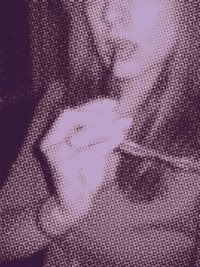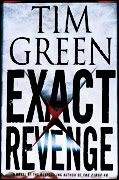I am far from what you would call a connoisseur of poetry. On the off chance that I do read a poem, it’s far more likely to be Silverstein than Sexton. But when three slim volumes of poetry happened upon my desk, I had to pick them up. After all, April is National Poetry Month. To bypass poetry in April would be a crime along the lines of not carving a pumpkin for Halloween or not picking up Stephen King’s “The Stand” for a lengthy re-read when summer cold season hit.
I’m not alone in my literary preferences. The reading material of the American population probably best resembles an upside-down pyramid; trickling down from the New York Times bestseller list through mass market paperbacks; passing through Oprah’s book club and lists of ‘the 100 greatest books of all time.’ Those of us who make it to the narrow tip might even pick up a collection of short stories – another beleaguered genre – from time to time. We weren’t always like this. We were raised on the rhymes of Mother Goose, and I dare you to find me a fifteen year old who doesn’t have a black covered notebook featuring overly flowery stanzas about the girl who sits across the aisle in Geometry. But as a whole, once we’ve passed our high school and college literature requirements, we seem to be as likely to pull a book of poetry off the library shelf as we would, say, the script of a play.
Pulitzer-winning poet Charles Simic draws attention to this phenomenon in his foreword to “The Shout,” a collection of poems by British writer Simon Armitage. “I’ve never understood the poor repute poetry has among general readers,” he writes. “They take it for granted that contemporary poetry is not only hopelessly obscure, but completely irrelevant to their lives, in addition to being just plain boring.”
Ouch. The truth stings.
Simic’s words taunted like a schoolyard dare. In poetry, could I find the relevance and poignancy that were missing in my dog-eared copies of “The Devil Wears Prada” and “Chloe Does Yale”? (Okay, maybe not much of a stretch.) More than that, could I, an average American – well, an average American who also happened to have an English degree – learn to appreciate poetry that didn’t include a line about a girl from Nantucket? This became my National Poetry Month challenge.
I asked a friend (who happens be an editor for a national poetry magazine, and thus the only person I know who reads poetry on a regular basis) for his opinion on the matter. After a short aside about entreating Joss Whedon to expound on the use of poetry in Buffy the Vampire Slayer, he got into the meat of things:
“Poetry today to people our age means nothing. I bet if I surveyed all the "Creative Types" I hang around with, not one of them would be able to name two contemporary poets. The fact that people in this country can be considered "literary" and have that knowledge based entirely in fiction and essays seems to me quite lacking. The teaching of poetry can be blamed first, and often is. Most high school students that I've spoken to do not know that Shakespeare was a poet, that he wrote hundreds of sonnets, basically shaped the contemporary form (14 lines, iambs, ends with a couplet), or that his dramatic work is written in a form to express the sounds poetically. Most adults tell me they don't read poetry because it's "too over their head." Avoidance of something intellectually intimidating I totally understand, but not getting Heisenberg's principle and not getting a Robert Lowell poem are a little different. So I think the problem with poetry today is somehow tied to the meaning. People believe there must be a meaning to it. What's funny is nobody thinks that about fiction. They don't struggle with a novel's meaning, they just read "The DaVinci Code" or whatever else, digest it, and move on; but for some reason, there's this weird mysticism surrounding poetry, like you have to be in on certain vibes to comprehend it. It's so bogus. There's nothing more to meaning in poetry than anything else.”
He moved on to reference She’s All That, but since my hatred of Freddie Prinze Jr. began around the time he coupled up with Sarah Michelle Gellar (lousy jerk, stealing my then-TV girlfriend), I skipped it. Sorry, Scott. I hope I didn’t miss anything good.
These sage words in hand, I approached my three books with a newfound lightness of soul, ready to read and experience poetry for whatever emotions they elicited in me, instead of being worried that my unschooled mind would end up missing something deeper in these books.
Simic’s poetry in “My Noiseless Entourage” seemed intimidating at first. He had won a Pulitzer! That gave me reason enough to be fearful - if I saw mush where everyone else saw brilliance, did that mean I was hopelessly cursed to never appreciate a poem again? Truthfully, I can't say I recognized the x-factor that makes Simic's poetry worthy of Pulitzer praise. However, I did enjoy the book, which was lyrical, haunting, evoking feelings of alienation in a gothic urban world. The book was excellent at creating an overall feeling of curiosity among gloom; no one particular poem rang out, making the individual poems like chapters in a larger, interconnected work of fiction. The book reminded me of the mood created in many British independent films (think Billy Elliott, not Love Actually), although Simic is neither British nor a filmmaker.
Simon Armitage, on the other hand, IS British. His poems in “The Shout” are witty, with individual offerings that stand out: “Kid,” told from the point of view of Robin (of Batman and Robin), who has grown tired of his sidekick role. “Holy-robin-redbreast-nest-egg-shocker!/Holy roll-me-over-in-the-clover,/I’m not playing ball boy any longer” the liberated hero cries. Armitage isn’t all about the pop culture, but there’s something decidedly hip about his offerings, many of which share the same coy boyishness. His cadence is such that I found myself tripping through the book at a fast clip, coming through exhilarated at the end.
I’m disappointed to say that Lavinia Greenlaw’s “Minsk” did not elicit the same reaction. Greenlaw writes the way I imagined poetry to be before my Poetry Month revelation: short, made up with obscure imagery that seemed to demand a scholarly eye. I found it hard not to be bogged down in this book, trying to dissect meaning once again. I can’t say that Greenlaw is a bad poet – for all I know, she is brilliant, amazing, genius, lauded among her peers. But for the casual reader, taking a browse through poetry almost on a whim, I was left struggling, adrift in phrases like “fair game/for the double-act coming off night patrol/open-armed, under-performed,” baffled by poetry once again.
Maybe it’s hard for an avid fiction reader to experience a sudden personal renaissance based on perusing three volumes of poetry. But after my journey, I’m feeling slightly less intimidated; maybe a little more likely to go to the 811’s in my library, pick up a book, and, with no expectations, begin to read.
The Books:
“My Noiseless Entourage”
Charles Simic
(Harcourt)
“The Shout”
Simon Armitage
(Harcourt)
“Minsk”
Lavinia Greenlaw
(Harcourt)




